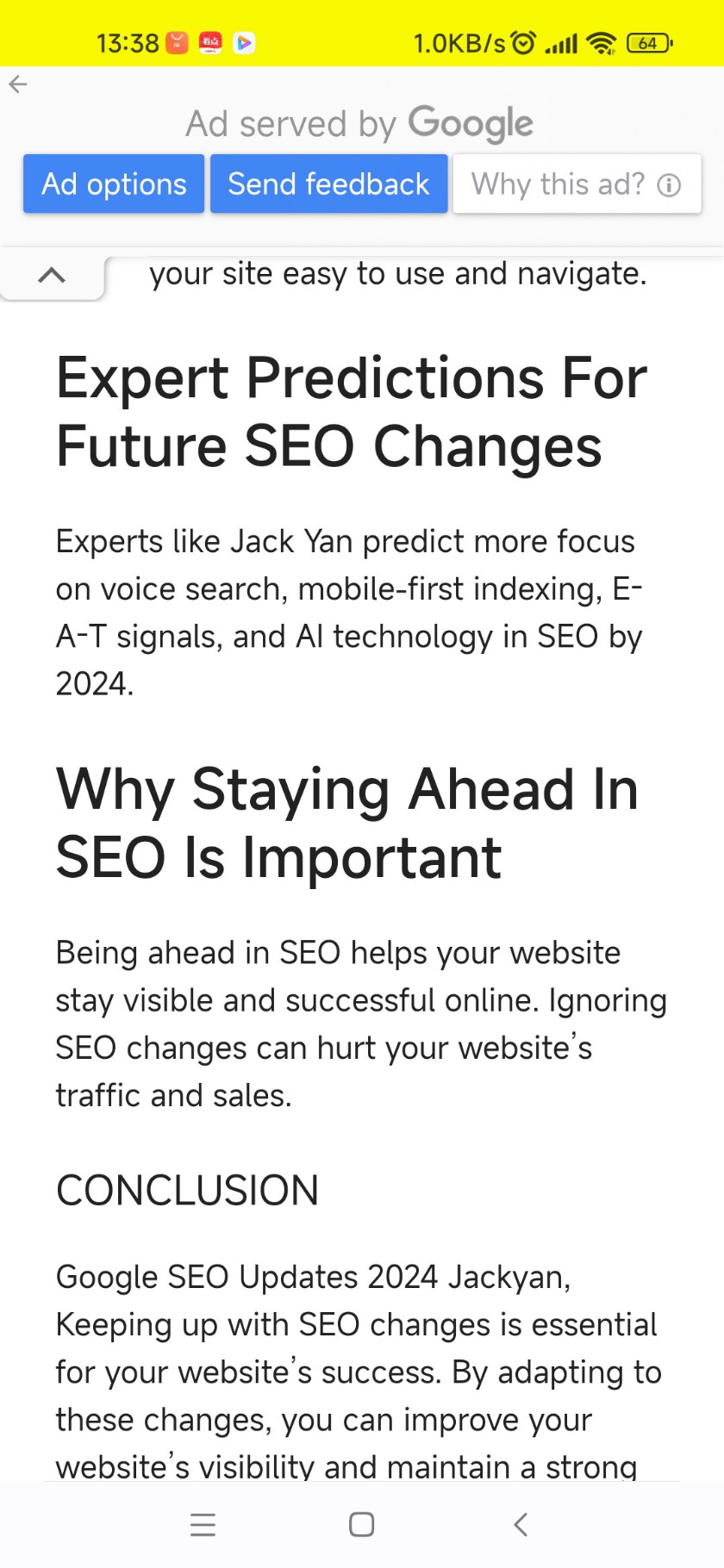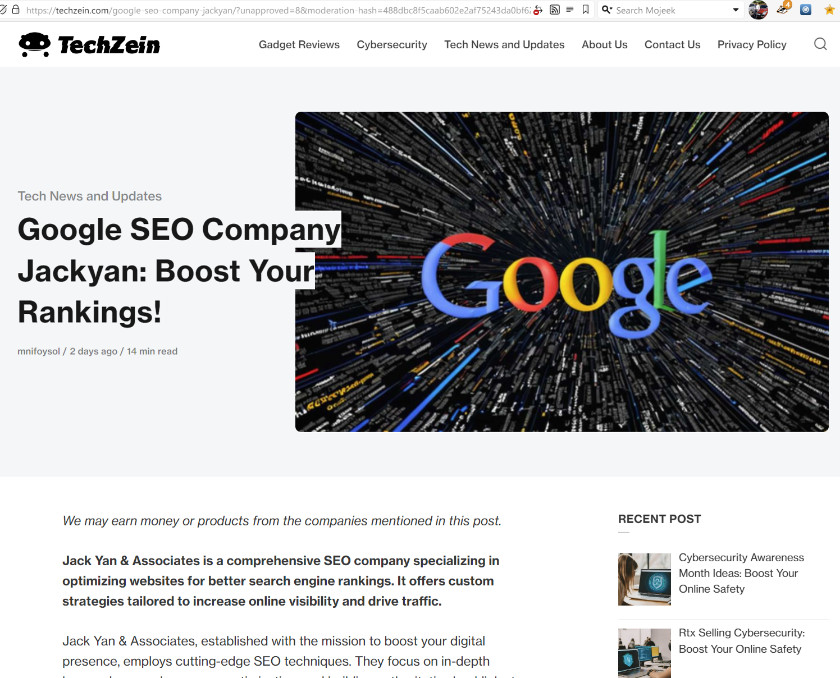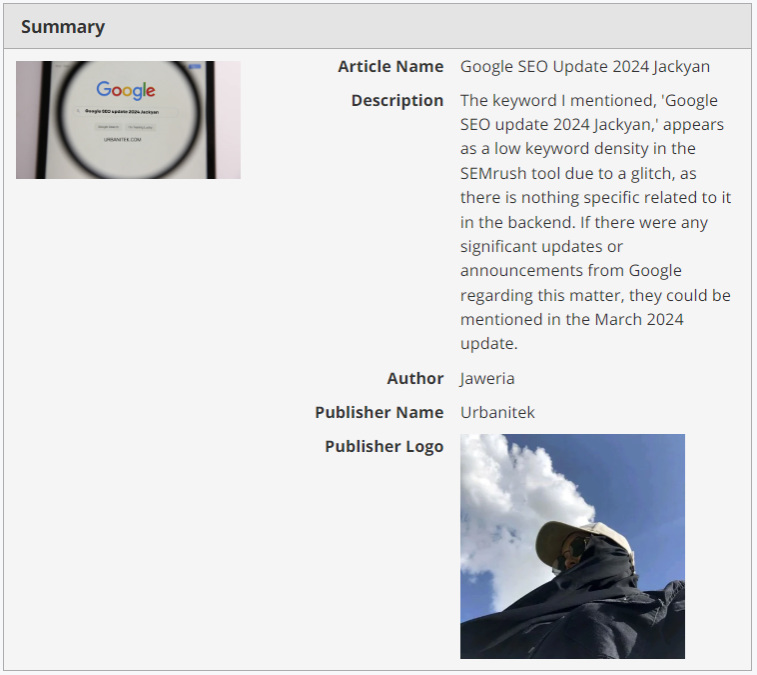For a while I enjoyed getting some of the hits from the unwary searching for my name in association with the misinformation that Semrush allegedly generated. After all, it’s my name, and I should enjoy the hits for Google SEO jackyan in order to set the record straight, rather than have the unscrupulous among SEO “experts” capitalize on and damage my reputation.
But once again, Google—the censorship machine, the spam-promoting machine, the splog-paying machine—has done what it is so good at, by promoting misinformation first.
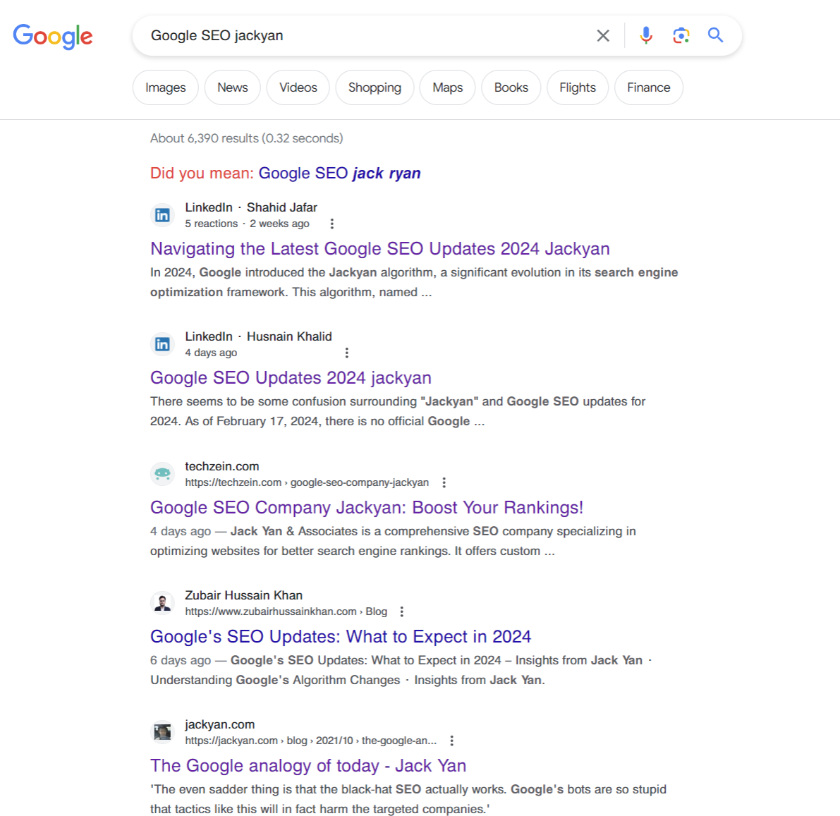
For a while, this post was third for the search, but it has since disappeared in favour of misinformation, bot-written splogs.
Which got me running another site:jackyan.com search to see what was going on.
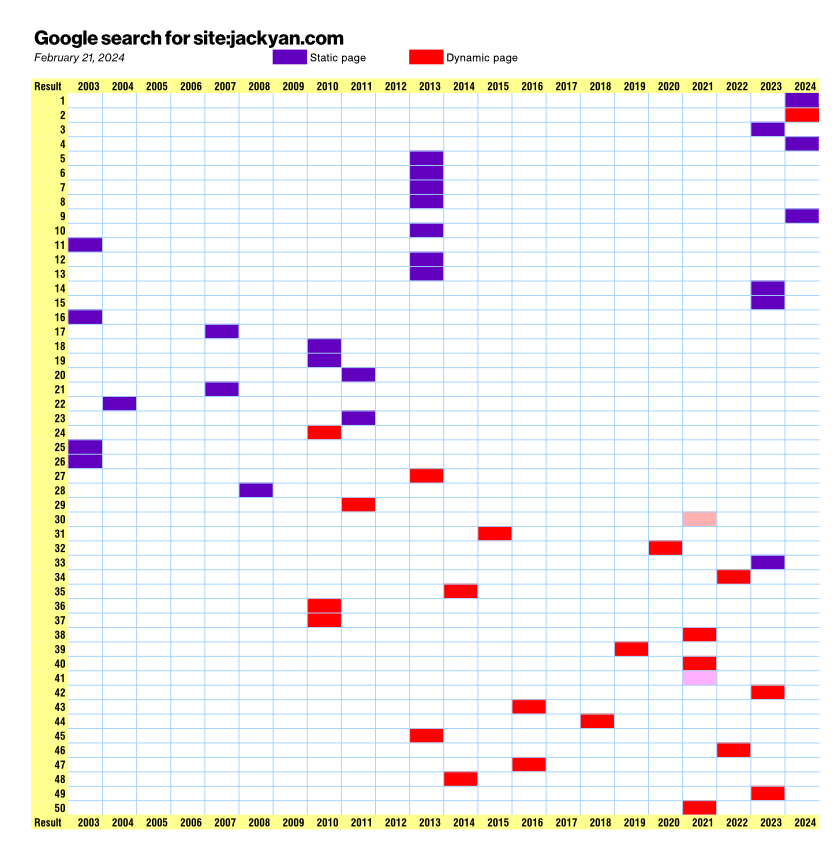
Regular readers know how many anti-Google posts there are. And it’s not even that I’m going after Google in particular. But its misdeeds are so numerous that it encourages the coverage. Yet, looking through about 100 results last night on my cellphone, only two Google posts came up: one negative, one positive. Is it likely to be that few? Or is Google, incapable of downranking spam, capable of downranking negative articles and posts about itself?
I bet on the latter, since Google Plus was a giant censorship machine, so we know the tech exists. And isn’t Google meant to be good at semantics? It’s why it’s better than the other search engines, right? Or was that all BS?
Cory Doctorow has, once again, penned an excellent piece about Google. Among his opening paragraphs:
Google’s search results are terrible. The top of the page is dominated by spam, scams, and ads. A surprising number of those ads are scams. Sometimes, these are high-stakes scams played out by well-resourced adversaries who stand to make a fortune by tricking Google
And he has plenty of examples of how Google lost to spammers and the severe effects that has had. It’s not better than the others. In fact, Mojeek adheres more to PageRank principles (as its founder Marc Smith read the original paper by Page and Brin) than Google does, and isn’t ranking a ton of spam for the same search from the start of this blog post.
Interestingly, Google has been quite happy to rank, in the top 50 for site:jackyan.com, my criticisms on Facebook, Bing and Go Daddy, just not about itself.
The good news is that Google now appears capable of showing dynamic pages in its results, though one (publicly invisible, unlinked and content-less) page still came up at position 30, while 41 was a repeat. They also continue to rank really old pages highly.
Incidentally, site:pluralistic.net (for Cory’s website) is eye-opening. Google ranks his blog index and tag pages for the most part, with only one article in the top 50 or so. Neither Mojeek nor Bing have this issue: both show articles. Google is doing a great job to discourage people from reading his words with this particular search, probably because he has Big Tech in his crosshairs more than me. The difference is Cory has way more mana in tech circles than I do—I’m just a non-tech guy caught up in the tech world’s shenanigans—so Google’s tricks have limited effect on his big, regular audience.
From the MIT Technology Review last June, Google is funding junk, bot-written websites. The headline: ‘Junk websites filled with AI-generated text are pulling in money from programmatic ads’. The author warned that the problem was ‘growing fast’. One paragraph:
Over 140 major brands are paying for ads that end up on unreliable AI-written sites, likely without their knowledge. Ninety percent of the ads from major brands found on these AI-generated news sites were served by Google, though the company’s own policies prohibit sites from placing Google-served ads on pages that include “spammy automatically generated content.” The practice threatens to hasten the arrival of a glitchy, spammy internet that is overrun by AI-generated content, as well as wasting massive amounts of ad money.
Less than a year later, we’re there, as if we didn’t see it growing in severity over the last several years. I could have plotted this outcome for you two decades ago. Mojeek, happily, is far less problematic.
Cory also links to this post at HouseFresh: ‘How Google is killing independent sites like ours’. There it’s crap content backed by big media names. What it has in common is that it’s designed to game Google—and Google is falling for it. I completely empathize.
